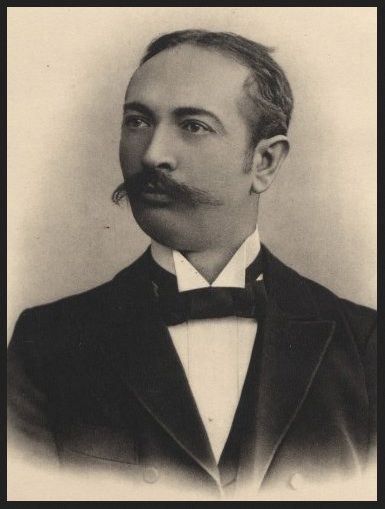Józef Piłsudski in German prisons

Years later, Aleksandra Piłsudska recalled this time as follows:
“It was extremely difficult to dream of stopping work; the food was terrible: soup, barley and awful bread that you could scarcely swallow. I ate in canteens because cooking at home was impossible due to the lack of fuel. Butter and other fats were rare. There was no flour in the shops either.”
In Magdeburg Piłsudski heard the sad news of the death of his brother Bronisław in Paris - a much-travelled ethonologist who had explored the Far East and previously lived in exile. About this time he began to record his memories of his time as a legionnaire. The first edition of “Moje pierwsze buje” (My First Battles) was published in 1925. When, at the end of August 1918, the German authorities decided to transfer Kazimierz Sosnkowski from the Magdeburg military prison to the fortress, Piłsudski's agonizing loneliness came to an end. The two men now spent their time playing chess, having discussions and taking walks outside the fortress walls.
Sosnkowski remembered: “After lunch we went about our business. The Commander wrote about his memories of the battlefields in the days of the Legion. (...) I must confess, however, that we often indulged in chess, and our passion for this sophisticated pastime sometimes caused a little friction between us.”
Their detention was now more like an internment with comforts. There were many trips into the city for visits to the cathedral, the museum, parks and other places of interest.
Piłsudski was also allowed to order food from the city. The first supplier was the Magdeburger Hof hotel restaurant (Alte Ulrichstrasse 4), and later the Patzenhofer beer restaurant at Bärstrasse 1. The receipts from this period indicate the reason for the change of supplier: the excessive prices at the Magdeburger Hof. It charged the Polish prisoner around 700 Marks a month for vegetable soup with meat and an evening meal, while the Patzenhofer restaurant only charged 350 Marks. The German government paid 250 marks a month for his meals. The rest was taken over by the General Government in Warsaw, which provided him with three grants of 1,000 marks. Further funds came from Polish party friends, which meant that Piłsudski received a total of ten thousand marks. Despite the Revolution, the balance of 1,445 marks was later met by the German state.




![Flyer to protest against the illegal internment of Piłsudski, 1917 Flyer to protest against the illegal internment of Piłsudski, 1917 - Flyer: On Sunday 29th of this month we will gather in front of the Adam Mickiewicz Monument at 11 am to protest against the illegal internment of Commander Józef Piłsudski and Chief of Staff of the First Brigade, Lieutenant Colonel [Kazimierz]. Sosnkowski](/sites/default/files/styles/width_100_tiles/public/assets/images/obywatele-obywatelki-inc-dnia-29-bm-w-niedziele-zbieramy-sie-o-godz-11-rano-na-0_kopie.jpg?itok=hxoxe_Lq)














































